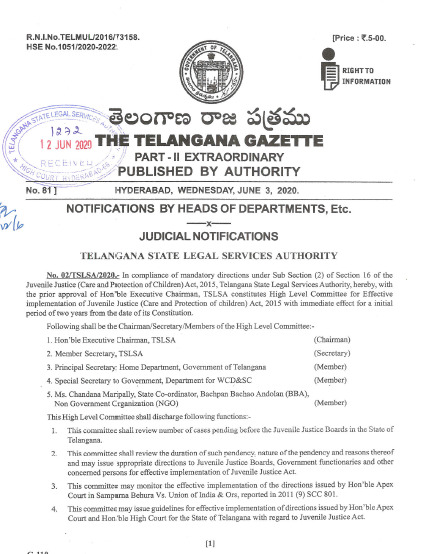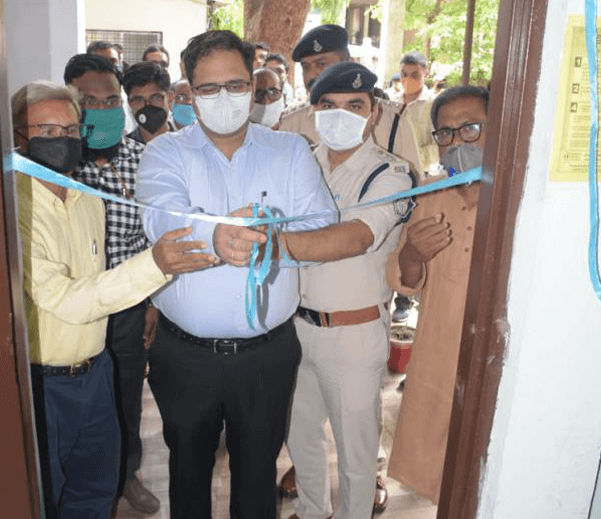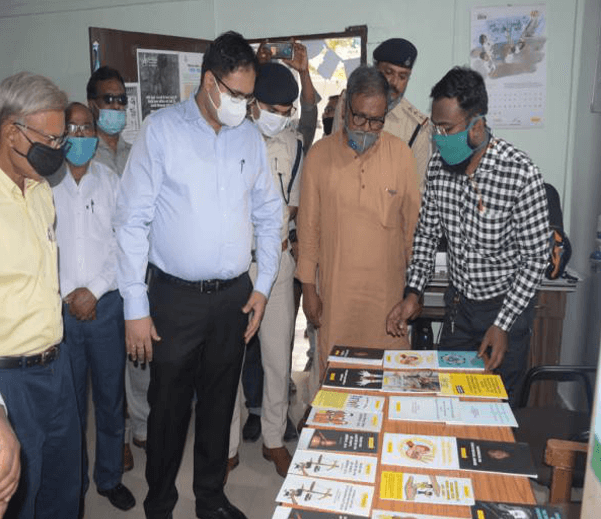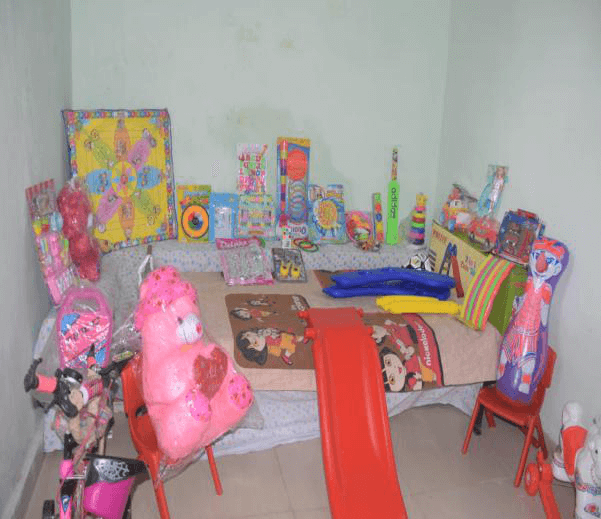Our most recent programme, Access to Justice started in 2017 to ensure that institutions concerned with Child Protection and Welfare, prominently the Government and its agencies, are capable, accountable and convergent to protect victims of child abuse and exploitation. It works to establish smooth coordination between different stakeholders in child protection and governance structures of the Central and State Governments.
Child Protection
Child protection is at the core of all that Bachpan Bachao Andolan (BBA) does. This programme aims at creating an enabling environment within the State governance structure and Society at large so that implementation of laws on Child Protection and Welfare is strenghtened. Development of a strong policy framework for securing child rights , supported by the necessary institutional framework where all stakeholders are aware, sensitive and empowered to work for welfare of children is aimed at through cooperation and coordination with State Govt, departments and agencies. The focus remains on child protection laws, time-bound rehabilitation of survivors, prosecution of perpetrators and mainstreaming of children through collaborative action with Government and other Civil Society Organizations.
Why Access to Justice: The programme aims to pursue implementation of child-related policies and laws which, though in place, are not rigorously followed. While the need for implementation of laws cannot be overstated, there is a greater need for their monitoring by the respective government agencies and all stakeholders.
Data for past five years - 2014-2019
rescued
(age under 18)
registered
Certificates issued
(for 1,231 children)
children's home visits
(Delhi only)
Data for past TWO years - 2017-2019
camps held
case interventions
visits
with NGOs
on childcare and protection
Institutional Building
There are multiple child protection institutions in India. Yet, there are gaps in their coordination and fixing accountability, which can be bridged by training. Our training programmes for all these agencies and stakeholders are aimed to arm them with knowledge of laws, thereby strengthening their implementation. These trainings focus on sharing knowledge, handholding, suggestions, best practices in different states and networking. They also include knowledge-sharing on practical aspects of dealing with and implementing laws, policies and judgments. Participants of our training programmes include police, lawyers, child welfare committees, juvenile justice board members, NGOs, and activists.
Knowledge and Capacity-Building of Stakeholders: Enhance their abilities, skills, knowledge of child protection laws, sensitising participants on child rights, their relevance and significance, explaining the specific roles and responsibilities of different stakeholders in dealing with child-related issues, enabling and understanding child-friendly approaches and sharing deep insights into the institutional and non-institutional options available for the rehabilitation of children.
So far, 80 workshops have been conducted for various stakeholders under the Access to Justice programme in 2018, covering 20 states. The key topics covered during these workshops include:
-
- The Juvenile Justice (care and Protection of Children) Act, 2015
- The Protection of Children from Sexual Offences Act, 2012
- The Child and Adolescent Labour (Prohibition and Regulation) Act, 1986
- Central Sector Scheme for Rehabilitation of Bonded Labour, 2016
Personnel
CWC and JJB
SCPS and DCPU
District Task Force
persons
society organisations
Care Institutions
and support staff
Strengthening Policy Frameworks, Implementation, Enforcement Mechanisms and Accountability
- Engaging and liaisoning with stakeholders in the area of childcare and protection: Regular and sustained engagement and collaboration with government agencies such as SCPCRs, SLSAs, labour and women and child development departments and the police have led to streamlined and result-oriented action on the ground
- Assisting the central and state governments to develop and deliver child protection policies: Planning and drafting child protection action plans, JJ Rules, POCSO Rules, CLPRA Rules and child protection policies
Resources and Technology
- Networking and partnering with NGOs working on child protection for effective outreach at the community level and result-oriented action
- Establishing convergent network of institutions for efficient and coordinated delivery of justice
- Encouraging best practices in the use of technology that safeguards rights of children and identifies all forms of abuses against them
Highlights for July 20202
As India is one of the Signatories to the UNCRC, for which state specific reports on are periodically submitted to the committee.
Department of Women and Child Development Haryana, has issued a notification as per which a committee is to be formed for the preparation of report. BBA has been appointed as the only NGO in that committee.
https://www.outlookindia.com/newsscroll/17-special-pocso-courts-inaugurated-in-kerala/1882219
https://keralakaumudi.com/en/news/news.php?id=339976&u=thiruvananthapuram-accounts-for-highest-number-of-pocso-cases-in-kerala
On February 28th February 2018, Karimnagar declaration was signed to make Telangana a Child Friendly State.
- Chief Justice led Committee to review quarterly the cases filed and those in prosecution
- The Committee will be co-headed by the Chief Justice of the High Court of Telangana and Deputy Chief Minster/ Minister for Department of Home/ Minister for the Department of Women and Child Development. It will consist of-
- The Member Secretary of State Legal Services Authority,
- The State Commission for Protection of Child Rights
- The Commissioner of Police
- A non-governmental organization working in the field of child rights.
- The Committee will be co-headed by the Chief Justice of the High Court of Telangana and Deputy Chief Minster/ Minister for Department of Home/ Minister for the Department of Women and Child Development. It will consist of-
Our State Coordinator Ms. Chandana has been appointed as one of the members in the committee to monitor the implementation of the deceleration points
The function of this Committee shall be:
- To monitor the status of all cases in child related laws on a quarterly basis, in terms of registration, investigation and trial.
- The Committee shall conduct end-to-end monitoring of cases of crime against children, in real-time.
- Conduct quarterly review on status and causes of pendency.
- The Committee shall also ensure that day to day trial is set up for all cases of POCSO which have been pending for more than 1 year.
- The Committee must do a follow up of the review and understand the challenges which are leading to the pendancy of cases.
- The Committee shall pass necessary directions to the responsible agencies for the timely and effective delivery of justice to children.
- The Member Secretary of State Legal Services Authority shall be the nodal officer for the operationalisation of the functions of the committee, to coordinate with other relevant agencies






